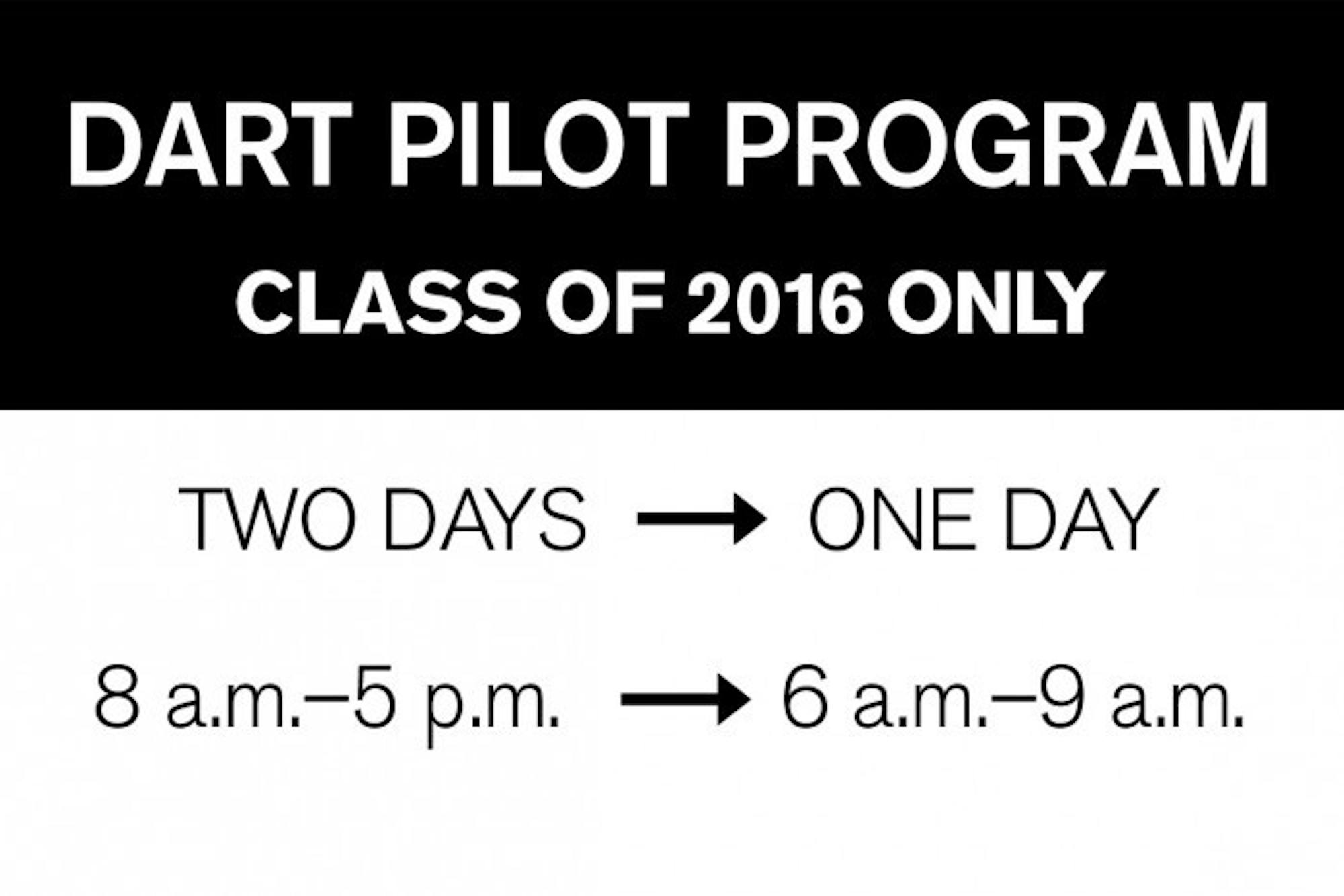In an email to the sophomore class last week, the student government Department of Academic Affairs said the Class of 2016 will take part in a pilot program for the DART registration process that condenses course registration into one three-hour time window this March.
“A proposal has been brought forth for an adjustment to the registration period for sophomores in March 2014,” the email said. “Instead of the normal spread of two days, all sophomores would register on a single day within a succinct three-hour period.
“Additionally, the sophomore class time tickets would be scheduled from 6 a.m. to 9 a.m. to minimize conflicts with classes, department exams, etc. Time tickets are spread out across the three-hour window to avoid system overload.”
Junior Max Brown, the director of Academic Affairs, said the course registration process will remain the same, aside from the shortened registration period.
“It’s going to be exactly the same as it was before, but the time slots [for registration] will be compacted,” Brown said. “Absolutely nothing is changing about the DARTing process other than the time slots being closer together.”
Brown said the decision to try this new system came from a close analysis of the current system and the feedback student government received regarding time conflicts with the DART system.
“We asked ourselves, ‘How can we make this system administratively more efficient and operationally more user-friendly so that students get the best possible outcome?’” Brown said.
“Some of the feedback we’ve gotten about the DART process was that there were conflicts with class, exams or other activities.”
Brown said student government has analyzed the DART system via student comments over the past few years.
“Students clearly feel that two days for registration time tickets is outmoded,” the email said. “Specifically, minimizing time tickets between 8 a.m. to 5 p.m. each day for two days due to frequent conflicts with a variety of activities would benefit students.”
Brown said a student population as large as Notre Dame’s will inevitably have conflicts whenever the University holds registration, but student government felt it could still improve upon the current system.
“The fact of the matter is that whenever we DART, there will be some conflicts,” Brown said. “[Student government] has really analyzed the system, and it’s an imperfect system, but we want to make it as fair as possible for as many students as possible.”
Brown said student government chose the sophomore class for the new pilot program because second-year students have enough experience with the process, but still have enough room in their schedules to take a wide variety of classes.
“This is probably the best group to give [student government] good feedback,” Brown said.
He said new technology, specifically additional software, allowed student government to try the new registration process.
“Now that we have the software, we can condense the times and not worry about overloading the system,” Brown said.
The email said the registration process will remain the same for all non-sophomore students, but if the pilot program is successful, it may expand.
“If the sophomore registration in March is successful, then the Office of the Deans, Registrar and Student Government shall consider expanding the concise window to other classes for Fall 2014,” the email said.













